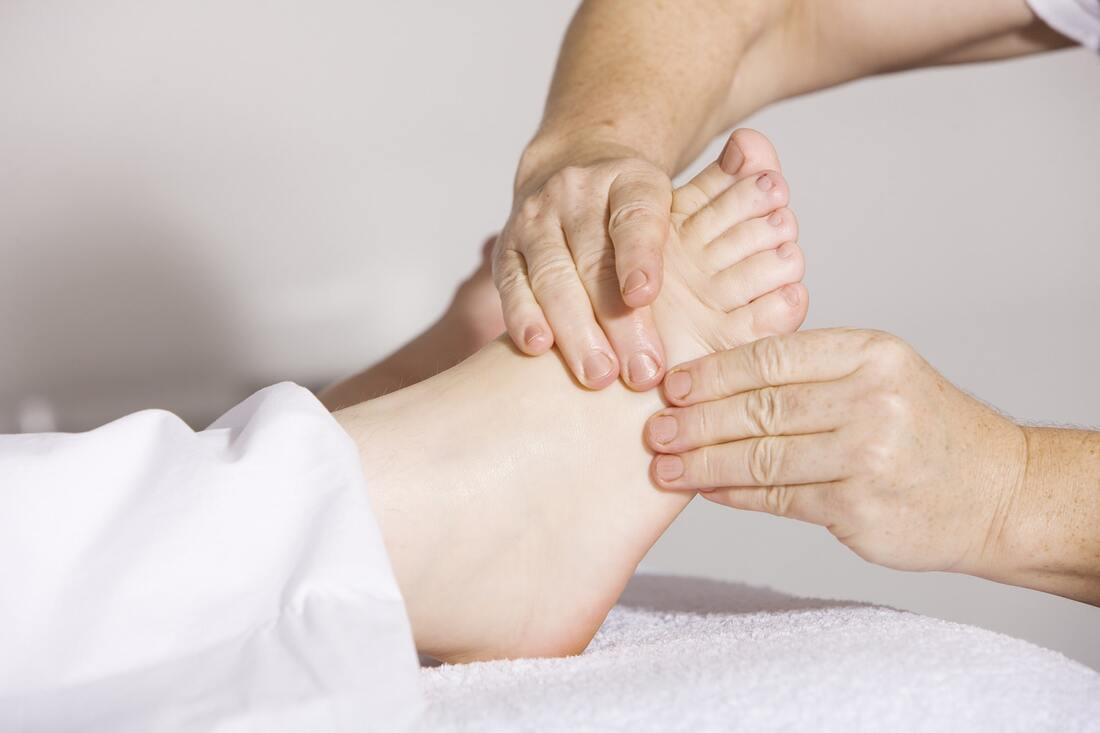Reflexology Massage
What is a Reflexology Massage?
Reflexology is a massage technique that involves applying differing amounts of pressure to specific areas of the feet, hands, and ears. The theory behind this treatment is that these body parts are interconnected with certain organs and body systems.
How Does Reflexology Work?
There are several theories about how this modality works.
One such theory is based on the ancient Chinese belief in qi (pronounced “chee”)—translated to mean vital energy. According to this theory, qi flows though out each person’s body. The body’s qi is blocked when a person is subject to stress. This can then result in a body imbalance that leads to illness and other negative issues. Reflexology is meant to keep the qi balanced and flowing through the body to keep the body disease free.
In the Chinese tradition, different body parts are connected with different pressure points on the body. A reflexology therapist uses maps of these points in the feet, hands and ears to determine where to apply pressure to treat specific problematic issues. They believe that this pressure sends energy through the connections until it reaches the areas in need of healing and addresses the problems.
Some rely on another theory called the Zone Theory. These therapists believe that touching specific areas in feet, hands and ears allows them to access every body part in a particular zone. The believe that the body contains some 10 vertical zones. Each zone connects to different body parts that map to specific spots on the hands, feet and ears.
British scientists found that there are nerves that connect the skin and internal organs. They also discovered that the entire nervous system tends to react to outside factors including touch. Therefore, another theory is that a therapist’s touch might just help calm the nervous system in a way that promotes relaxation and other benefits received from various other types of massage techniques. Some are convinced that reflexology can reduce pain through the calming touch which will help to improve the receiver’s mood and reduce stress.
One such theory is based on the ancient Chinese belief in qi (pronounced “chee”)—translated to mean vital energy. According to this theory, qi flows though out each person’s body. The body’s qi is blocked when a person is subject to stress. This can then result in a body imbalance that leads to illness and other negative issues. Reflexology is meant to keep the qi balanced and flowing through the body to keep the body disease free.
In the Chinese tradition, different body parts are connected with different pressure points on the body. A reflexology therapist uses maps of these points in the feet, hands and ears to determine where to apply pressure to treat specific problematic issues. They believe that this pressure sends energy through the connections until it reaches the areas in need of healing and addresses the problems.
Some rely on another theory called the Zone Theory. These therapists believe that touching specific areas in feet, hands and ears allows them to access every body part in a particular zone. The believe that the body contains some 10 vertical zones. Each zone connects to different body parts that map to specific spots on the hands, feet and ears.
British scientists found that there are nerves that connect the skin and internal organs. They also discovered that the entire nervous system tends to react to outside factors including touch. Therefore, another theory is that a therapist’s touch might just help calm the nervous system in a way that promotes relaxation and other benefits received from various other types of massage techniques. Some are convinced that reflexology can reduce pain through the calming touch which will help to improve the receiver’s mood and reduce stress.
What Are Some of the Benefits of Reflexology?
Reflexology has been linked to many different potential benefits through some scientific studies and many anecdotal patient experiences. These benefits include the following:
- Stress and anxiety reduction
- Mood enhancement
- General well-being improvement
- Pain reduction
- Immune system improvement
- Cold and bacterial infection improvements
- Sinus clearing
- Back problem improvements
- Hormonal imbalance improvements
- Arthritis pain improvement
- Peripheral neuropathy improvement
- Digestion improvement
- Fertility boosts
Is Reflexology Safe?
Yes, reflexology is extremely safe regardless of whether or not you have serious health conditions. It is very comfortable to receive and is noninvasive. It certainly may be worth trying if you have an interest.
You may need to take a few precautions to avoid any adverse effects if you bruise or bleed more easily or have any of the following issues:
If you have any concerns, please talk with your doctor first.
All of our therapists at J Massage are professionally trained and certified. They will help you enjoy a reflexology massage or there are many other types of massages available. We are open 7 days a week for 12 hours each day. Call today for your appointment at 801-288-1118.
You may need to take a few precautions to avoid any adverse effects if you bruise or bleed more easily or have any of the following issues:
- Epilepsy
- Thyroid problems
- Open wounds on your feet or hands
- Ulcers on your feet
- Gout
- Inflammation in your legs or blood clots
- Circulatory problems in your feet
If you have any concerns, please talk with your doctor first.
All of our therapists at J Massage are professionally trained and certified. They will help you enjoy a reflexology massage or there are many other types of massages available. We are open 7 days a week for 12 hours each day. Call today for your appointment at 801-288-1118.


